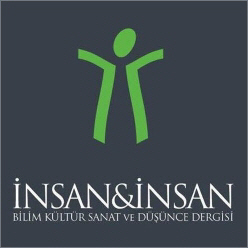Uğur Yılmaz / Ece Nur Demir Yılmaz
Abstract: This study aims to examine the relationship between aesthetic and sociological imagination within the framework of the characteristics of visual forms (art/media images) in the environment of contemporary visual culture and to make a theoretical assessment of the importance of these imagery structures in art and art education. These assessments were carried out from a perspective based on the relationship between art and society. As a result of these assessments, it was found that the relationship between aesthetic and sociological imagination is intertwined within the scope of the production, distribution, and consumption processes of visual forms in the postmodern process, and in parallel with this situation, the importance of teaching activities and curriculum arrangements for the integration of both imagination structures in art education has been encountered. It has been understood that pedagogical activities focused on developing sociological imagination will provide a sociological perspective to the aesthetic imagination of individuals; thus, it will help to provide a conscious way of thinking about the cultural and social characteristics of visual forms.
Keywords: Sociological imagination, Aesthetic imagination, Sociology of art, Art education, Postmodern art
Uğur Yılmaz / Ece Nur Demir Yılmaz
DOI: 10.29224/insanveinsan.1056801
Year 9, Issue 32, Spring 2022

Tam metin / Full text
(English)

This work is licensed under a Creative Commons Attribution-NonCommercial 4.0 International License.
